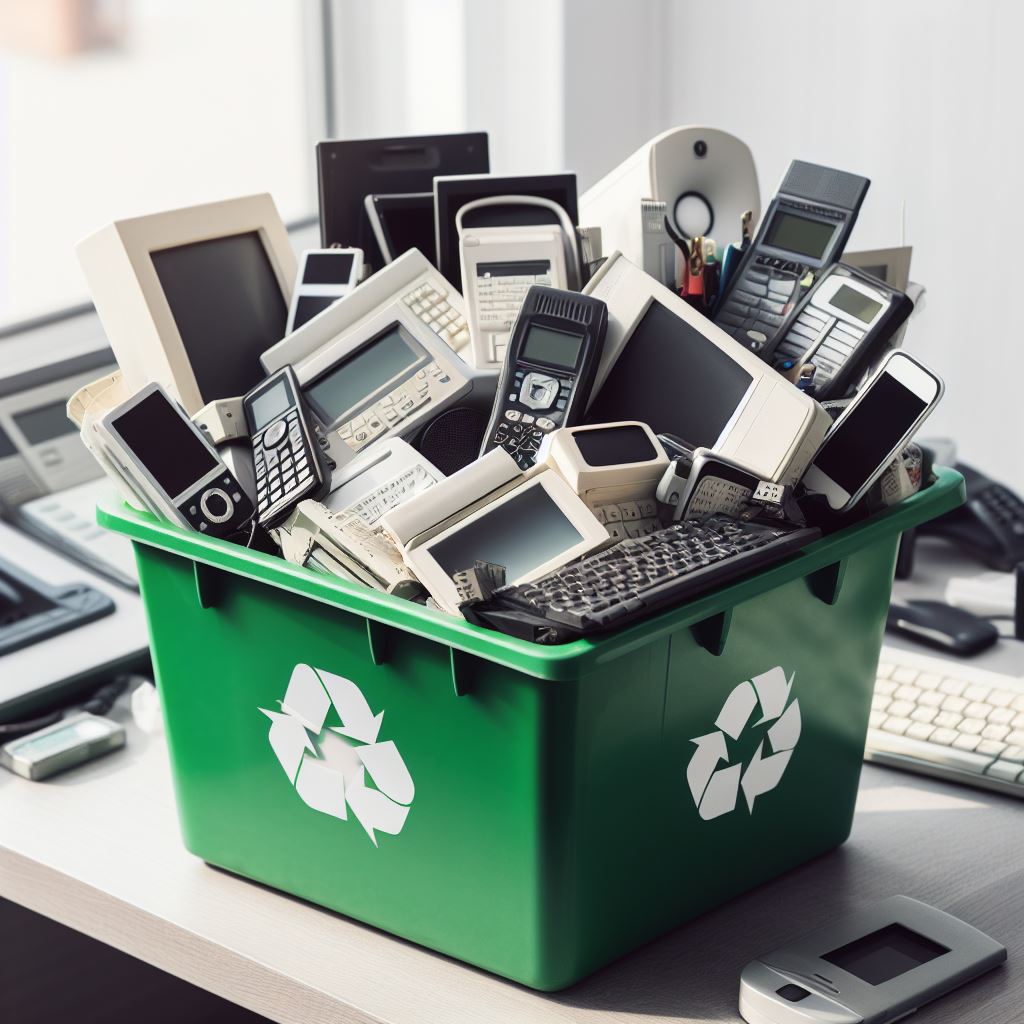In the bustling world of office dynamics, one often overlooked aspect is rubbish clearance. The term might sound mundane, but proper office rubbish clearance in London is integral to maintaining a healthy, productive workspace. Let’s delve into the ultimate guide to office rubbish clearance and explore why it’s more than just tidying up.
Benefits of Regular Office Rubbish Clearance
Enhances Workspace Productivity
A clutter-free environment directly correlates with improved productivity. Employees thrive in organized spaces, and regular rubbish clearance ensures that unnecessary items don’t impede workflow.
Promotes a Healthy Work Environment
Besides the obvious aesthetic benefits, proper rubbish clearance contributes to a healthier workplace. Eliminating potential breeding grounds for bacteria and pests is crucial for employee well-being.
Improves Aesthetic Appeal
First impressions matter. An office with a clean and organized appearance not only impresses clients and visitors but also boosts employee morale.
Common Challenges in Office Rubbish Clearance
Lack of Awareness
One common challenge is the lack of awareness regarding the importance of proper rubbish clearance. Educating employees about the impact of their waste disposal habits is a crucial first step.
Inadequate Waste Management Systems
Some offices struggle due to outdated or insufficient waste management systems. Investing in modern, efficient solutions can make a significant difference.
Environmental Impact
Improper rubbish clearance can have severe environmental consequences. From pollution to resource depletion, the impact can be far-reaching.
Step-by-Step Guide to Effective Office Rubbish Clearance
Conducting a Waste Audit
Before implementing a clearance strategy, conduct a thorough waste audit to understand the types and quantities of waste generated. This forms the basis for a targeted plan.
Implementing a Recycling Program
Promote recycling within the office. Set up designated bins for paper, plastic, and other recyclables. Educate employees about the importance of recycling.
Hiring Professional Clearance Services
For a comprehensive solution, consider hiring professional clearance services. They have the expertise and resources to handle various types of waste effectively.
Green Practices in Office Rubbish Clearance
Eco-Friendly Disposal Methods
Explore environmentally friendly disposal methods, such as composting organic waste and using biodegradable packaging.
Encouraging Recycling Among Employees
Implement incentive programs to encourage employees to actively participate in recycling efforts. Recognition and rewards can go a long way in fostering a green mindset.
Cost-Effective Solutions for Office Rubbish Clearance
DIY Clearance Strategies
For budget-conscious offices, do-it-yourself clearance strategies can be effective. Train staff on proper waste disposal and recycling techniques.
Outsourcing vs. In-House Clearance Teams
Evaluate the cost-effectiveness of outsourcing rubbish clearance versus maintaining an in-house team. Consider factors such as frequency, volume, and specialized waste handling.
Legal Compliance in Office Rubbish Clearance
Understanding Local Regulations
Be aware of local regulations regarding waste disposal. Failure to comply can result in fines and damage to the company’s reputation.
Ensuring Proper Documentation
Maintain documentation of waste disposal activities. This not only helps in legal compliance but also serves as a record for continuous improvement.
Technology Integration in Rubbish Clearance
Waste Management Apps
Explore the use of waste management apps to track and optimize rubbish clearance processes. These apps often provide real-time data and analytics.
Smart Bins and IoT Solutions
Invest in smart bins equipped with IoT (Internet of Things) technology. These bins can signal when they need emptying, optimizing clearance schedules.
Measuring the Success of Your Rubbish Clearance Strategy
Key Performance Indicators
Establish key performance indicators (KPIs) to measure the success of your rubbish clearance strategy. This could include waste reduction percentages and employee participation rates.
Continuous Improvement
Regularly review and reassess your rubbish clearance strategy. Seek feedback from employees and adapt your approach based on evolving needs and circumstances.
Addressing E-Waste in Office Clearance
Proper Disposal of Electronic Equipment
E-waste poses a unique challenge. Ensure proper disposal of electronic equipment through certified recycling programs.
E-Waste Recycling Programs
Explore partnerships with e-waste recycling programs. Many companies specialize in responsibly disposing of electronic waste.
Employee Training and Awareness Programs
Importance of Employee Involvement
Emphasize the crucial role employees play in effective rubbish clearance. Foster a sense of responsibility for the collective well-being of the office.
Training Initiatives for Waste Reduction
Implement training initiatives focused on waste reduction. Educate employees on the proper sorting of waste and the impact of their choices.
Future Trends in Office Rubbish Clearance
Technological Advancements
Stay informed about emerging technologies in rubbish clearance. Automation and advanced waste sorting techniques are likely to shape the future of office waste management.
Evolving Environmental Policies
Monitor changes in environmental policies that may impact rubbish clearance. Adapting to evolving regulations ensures continued legal compliance.
Conclusion
In conclusion, effective office rubbish clearance is more than just a janitorial task—it’s a strategic approach to creating a conducive work environment. By addressing challenges, implementing green practices, and staying abreast of technological advancements, offices can ensure a clean, healthy, and sustainable workspace.
FAQs
What are the legal implications of improper office rubbish clearance?
Improper rubbish clearance can lead to legal fines and damage the reputation of the company. It’s crucial to adhere to local regulations.
How often should an office conduct rubbish clearance?
The frequency of rubbish clearance depends on the size and nature of the office. However, a regular schedule, such as weekly or bi-weekly, is recommended.
Can office furniture be recycled during clearance?
Yes, office furniture can often be recycled. Consider donating or selling usable items and recycling the rest.
Are there tax incentives for eco-friendly rubbish clearance?
In some regions, there are tax incentives for businesses adopting eco-friendly practices, including rubbish clearance. Check with local authorities.
What are the potential risks of not managing office rubbish properly?
Risks include health hazards, reduced productivity, and legal consequences. Proper management is essential for a safe and thriving workplace.

















